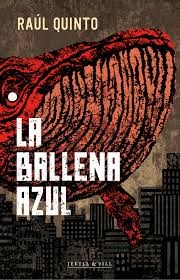
Original language: French
Original title: Who killed my father
Translation: Pablo Martin Sanchez
Year of publication: 2018
Valuation: recommendable
Look, I’m happy to say this to the publishers. Or more specifically to the opaque subsector that in publishing houses is dedicated to writing the texts that describe the books on the backs, covers, back covers or bands or bands. We already know that it is his moment of glory to write that thing between profile and synopsis and promotional text. That I understand its role in deciding the reader who holds the book in their hands. But please, I stick to that in this case, don’t say that about a French author again. the new enfant terrible. I repeat please, summer arrives and euphoria takes over the continent. We already know who they are referring to and who it is the old enfant terrible. Therefore, it is cruel to project unfounded hope, even if it serves to increase sales and inflate the product, for the author himself.
Édouard Louis, despite being in his early thirties, has already published a few books, based on personal experiences, they say, and, complete the synopsis, serves as a reference to social movements in certain struggles that. Personally, I do not hesitate to support and express my sympathy for them. Who in their right mind does not identify a problem in inequality. Literature, I firmly believe, must also fulfill that function. Along with pleasure, together with personal enrichment, also in addition to mere entertainment, if possible. So the postulates of Louis’ work, if they are shared with those of this novel, serve me regardless of whether it needs to be labeled in order to be able to offer it to the public. Even if we go to the heart of the matter, it could be contradictory to use arguments of marketing (this writer is similar to that other one who is so popular and sells so much) to promote a text that is a harsh attack on the neoliberal policies that have found, regardless of parties and colors, so much continuity in the French governments of recent decades. France, excuse the reductionist definition: country of conservative white elderly people who barely tolerate young people of other races fighting for their place in the country in which they live. A combination of difficult coexistence.
In any case, the story told here is that of a son in his twenties who turns to his father, devoured by the consequences of a work accident, forced by a system that applies cut after cut to his benefits to return to the labor market. , subsisting with a silent dignity at the expense of her low educational level and her understandable closed-mindedness, we find her in a speech that is not usually so direct and forceful. That is why Louis does not deserve to be packaged: because he addresses with names and surnames those responsible and the specific measures that have led to this situation. That is the merit, perhaps not so much literary – the prose is angry but perhaps a bit naive – as social. Pointing the finger, an obvious sign of rudeness but one that we have no choice but to resort to. In a universe of such marked personal leadership, so often a preamble to sinister times, Louis eludes the invisible enemy (that father who is so difficult to identify) and colors the text with a tone of denunciation, perhaps not in such a universal way that anyone can take as his own, but in any case effective and frank, enough to make this short novel an exercise, perhaps a mere training for that reason, in social chronicle.
Source: https://unlibroaldia.blogspot.com/2024/06/edouard-louis-quien-mato-mi-padre.html


